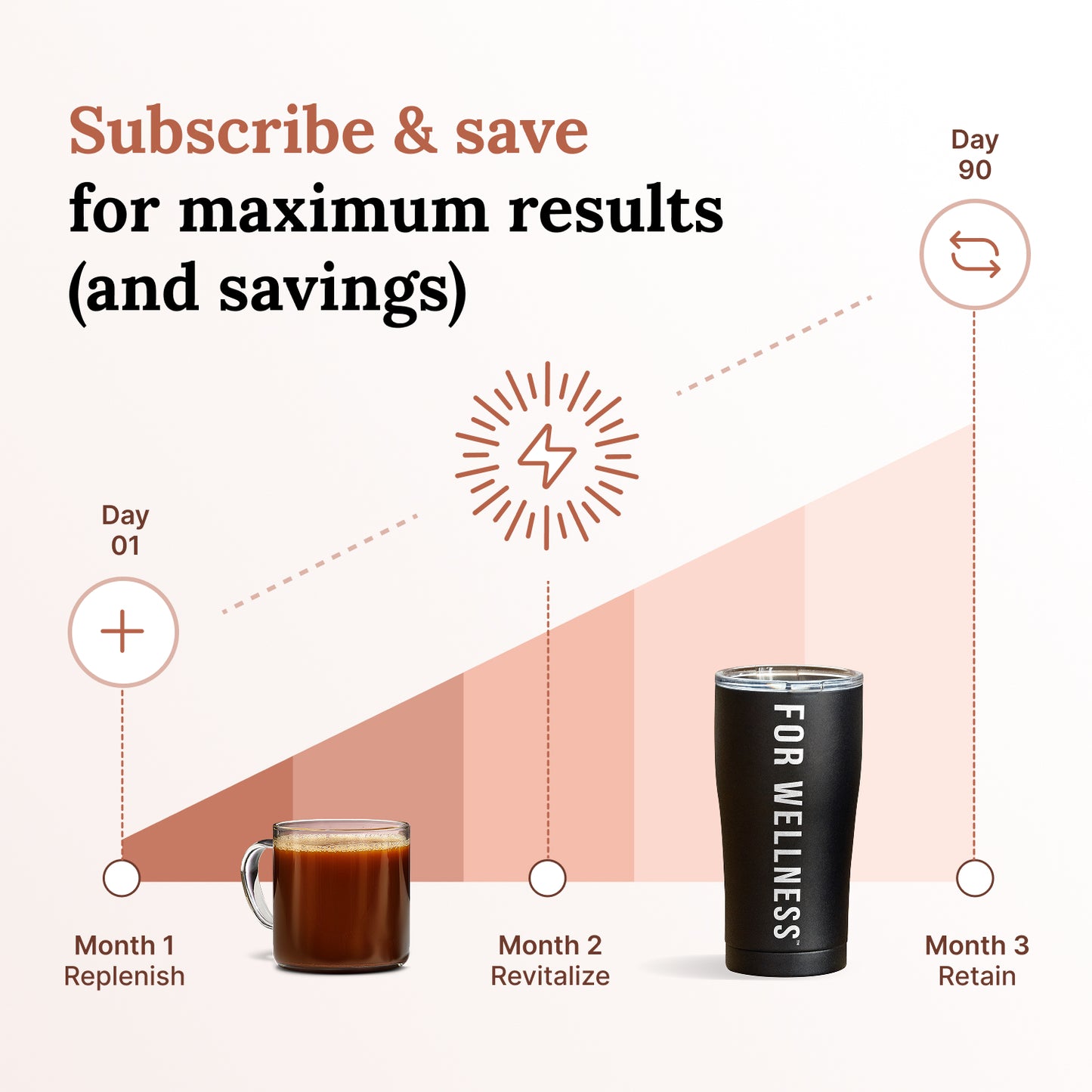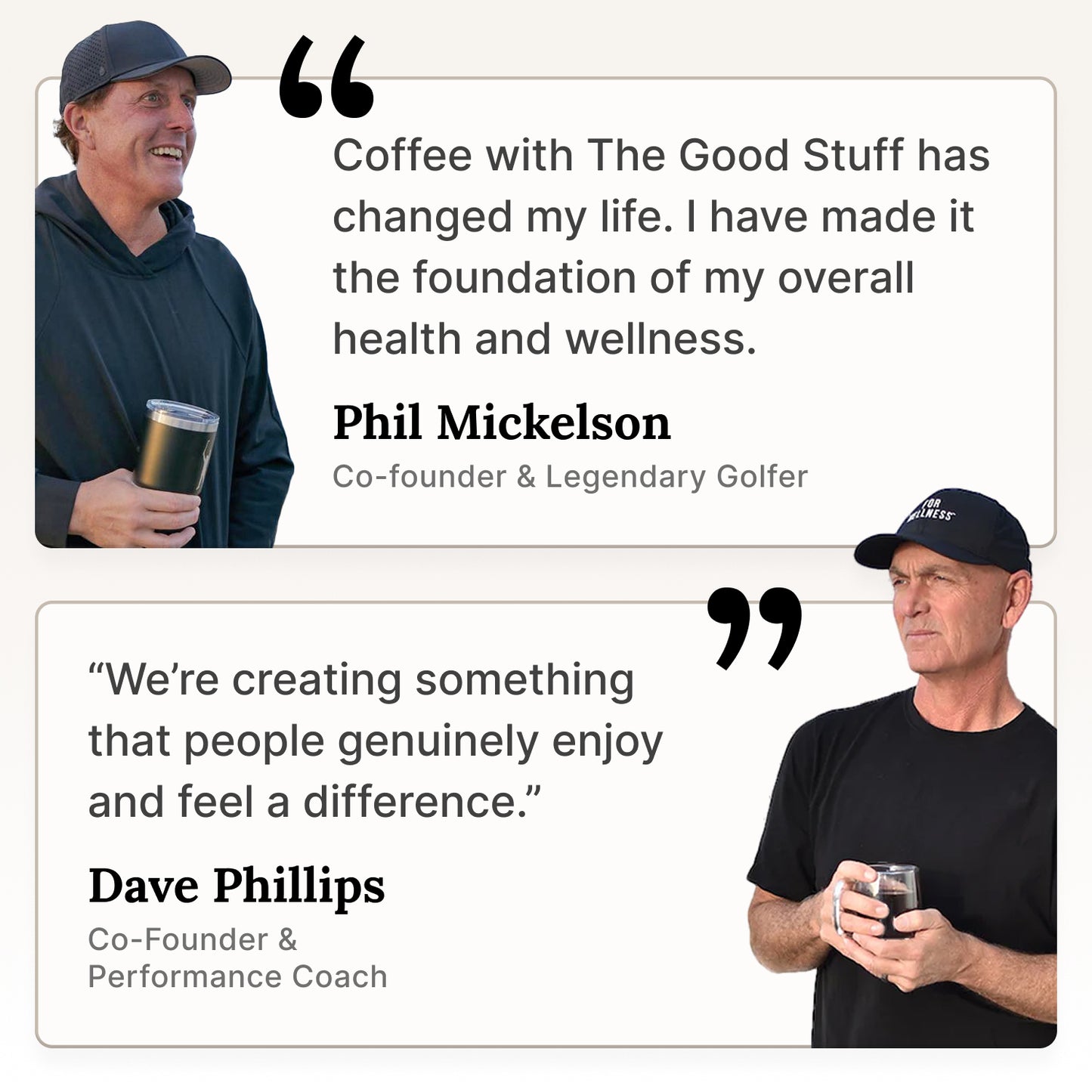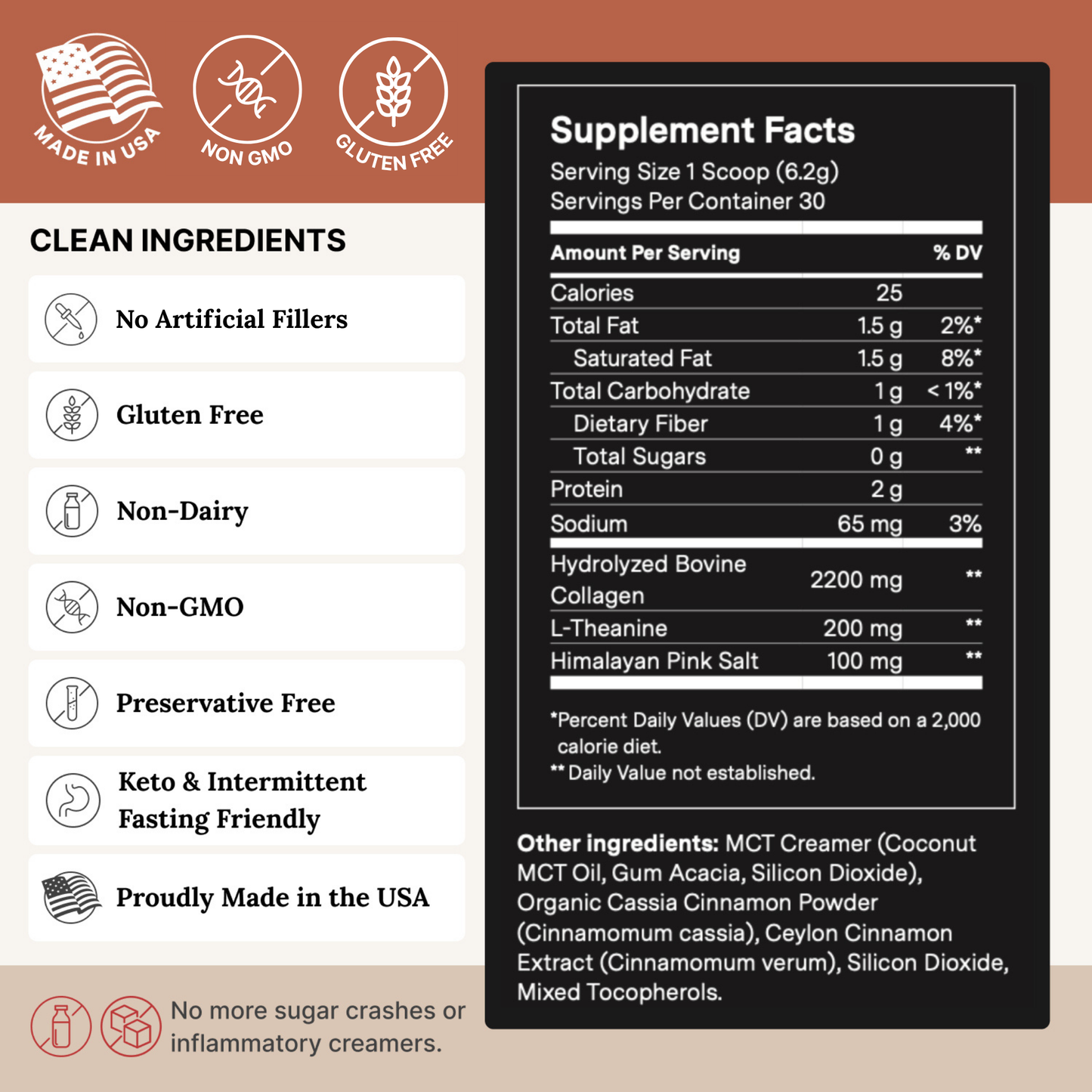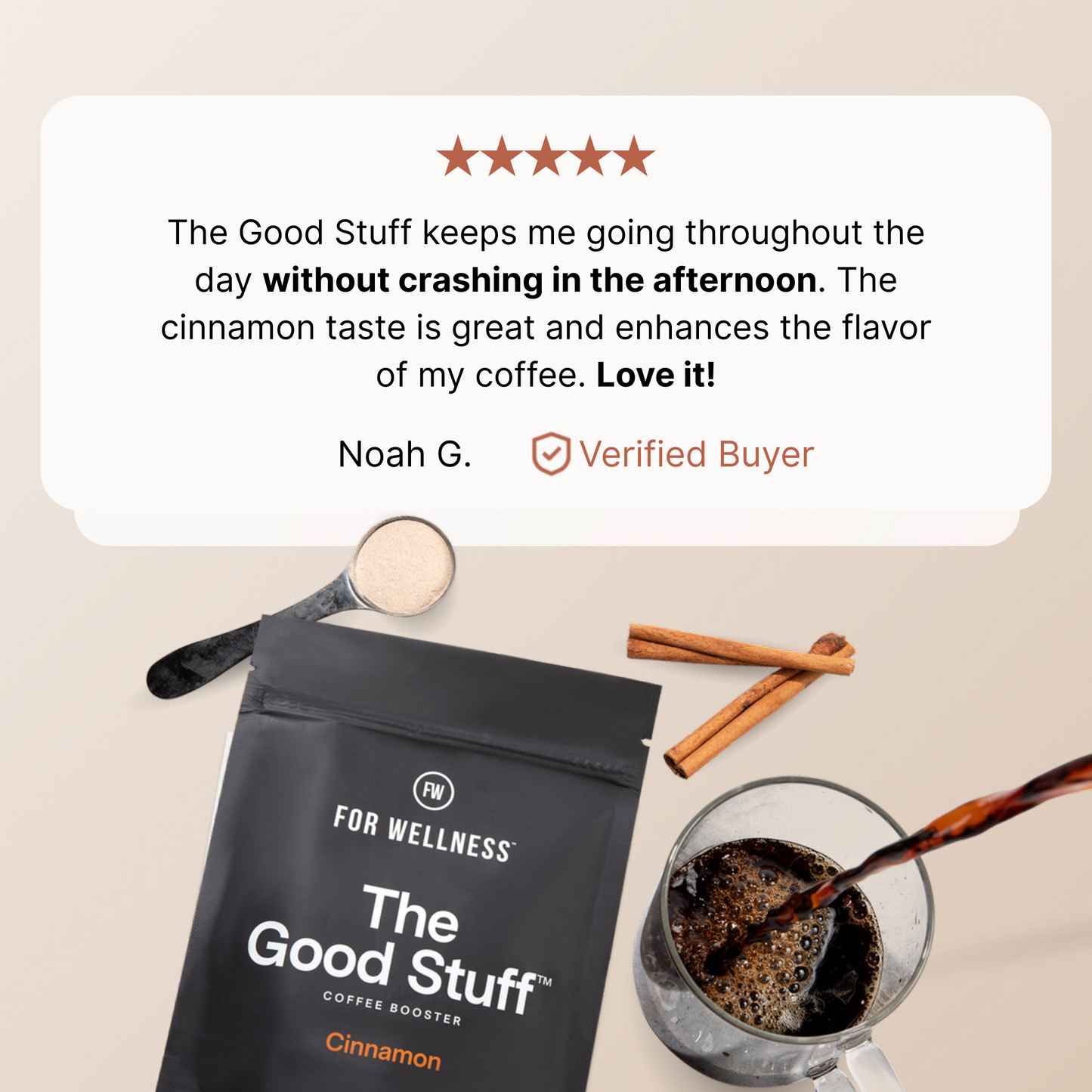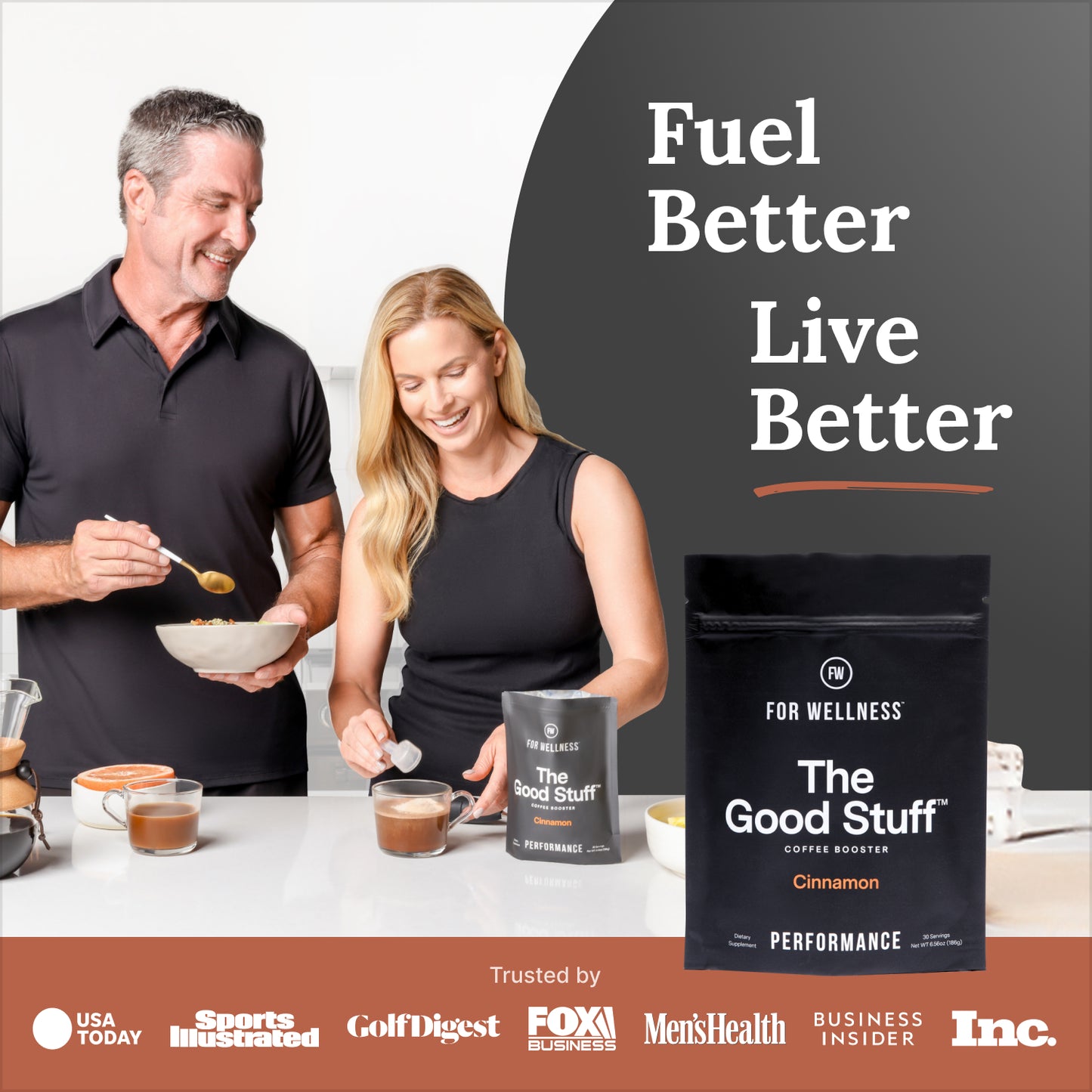As parents, we often become so focused on nourishing our children that we forget to nourish ourselves. We grab whatever's convenient, skip meals entirely, or find ourselves eating leftover chicken nuggets standing over the kitchen sink at 9 PM. But here's the thing: you can't pour from an empty cup, and running on fumes isn't sustainable for the marathon of parenthood.
This guide isn't about adding more to your already overwhelming to-do list. It's about working smarter, not harder, to fuel your body and protect your sanity during one of the most chaotic times of the year. Because taking care of yourself isn't selfish—it's essential.
Fueling Your Body When Sleep Is a Luxury
Let's be honest about the reality of parent life: you're probably not getting the recommended eight hours of sleep. When you're running on five or six hours (if you're lucky), your body goes into survival mode. It craves quick energy from sugar and caffeine, your hunger hormones go haywire, and making healthy choices feels nearly impossible.
The key is understanding that when you're sleep-deprived, your body needs even more nutritional support, not less. Think of food as medicine for your overtaxed nervous system and depleted energy stores.


The Good Stuff - Focus
-
Stimulates cognitive function and mental clarity.
-
Slow-release energy and mood enhancer.
-
Delicious mocha flavor you have to try to believe.
-
Unique formula, only available at For Wellness.
Start with a foundation that fights fatigue. Complex carbohydrates are your best friend because they provide steady, sustained energy without the crash. Instead of reaching for a sugary pastry when you're dragging at 2 PM, try steel-cut oats with almond butter and berries for breakfast. The fiber slows down sugar absorption, keeping your energy levels more stable throughout the morning.
Sweet potatoes deserve a special mention here. They're packed with complex carbs, beta-carotene, and potassium, and they're incredibly versatile. Roast a batch on Sunday and add them to salads, grain bowls, or eat them as a side throughout the week.
Choose functional foods over empty calories. Instead of adding creamer to your coffee, add The Good Stuff Focus. Not only does this support focus and ease the coffee jitters, but it also combats the coffee crash that can leave us feeling unstable.
Protein is your staying power. When you're constantly on the go, protein helps you feel full longer and prevents those desperate vending machine raids. Greek yogurt mixed with hemp seeds gives you both protein and healthy omega-3 fats. Hard-boiled eggs are portable perfection—make a dozen on Sunday night and grab them throughout the week.
Don't overlook legumes, either. A can of chickpeas can be roasted with spices for a crunchy snack, blended into hummus, or tossed into salads. They're budget-friendly, shelf-stable, and packed with both protein and fiber.
Don't sleep on glucose. Glucose is your brain's preferred fuel source. Keep a stash of energizing Recovery Gummies in your glovebox, bag, or kitchen for an easy no-mix, no-mess boost.
Healthy fats for your brain. Your brain is about 60% fat, and when you're managing multiple schedules, making countless decisions, and trying to keep everyone in your family happy and healthy, your brain needs premium fuel. Avocados are nutritional powerhouses that can be added to almost anything—toast, eggs, salads, or even smoothies for creaminess.
Nuts and seeds are perfect for busy parents because they're portable and don't require preparation. Keep a bag of mixed nuts in your car, your purse, and your desk drawer. Walnuts are especially rich in omega-3 fatty acids, which support brain function and can help combat the inflammation that comes with chronic stress.
Eat the rainbow. Colorful fruits and vegetables aren't just Instagram-worthy—they're packed with antioxidants that help your body cope with stress. Berries are particularly powerful because they're high in vitamin C and anthocyanins, compounds that support brain health and energy production.
The goal isn't to completely overhaul your diet overnight. Instead, think about small swaps and additions. Add spinach to your scrambled eggs. Throw berries into your yogurt. Drizzle olive oil on your vegetables. These tiny changes add up to significant nutritional improvements.
Strategic Eating for Chaotic Schedules
The reality of parent life means you need strategies that work when life gets messy. Meal planning doesn't have to be complicated or Pinterest-perfect. It just needs to be functional.
Think in components, not complete meals. Instead of planning elaborate dinners, focus on having proteins, grains, and vegetables prepped and ready to mix and match. Cook a big batch of quinoa, roast several types of vegetables, and prepare a couple of proteins at the beginning of the week. Then you can quickly assemble different combinations throughout the week without feeling like you're eating the same thing repeatedly.
Find healthy, convenient swaps. Our Superfood Bites are made with 100% organic whole foods that are cold-pressed to minimize processing. Swap your usual morning donut for a bite that not only tastes like a chocolate brownie, but supports brain health, too. There's also 33mg of natural caffeine in there for an added zap of energy.
Embrace the power of the freezer. Smoothie packs are a game-changer for busy mornings. Pre-portion fruits and vegetables in freezer bags, then just add liquid and blend. Frozen vegetables are just as nutritious as fresh ones and remove the stress of produce going bad before you can use it.
Make hydration happen automatically. Fill a large water bottle first thing in the morning and aim to finish it by lunch, then refill it for the afternoon. Add slices of lemon, cucumber, or fresh mint to make it more appealing. Herbal teas count toward your fluid intake and can be particularly soothing if you're dealing with stress.
Remember that caffeine can be helpful in moderation, but try to cut it off after 2 PM to protect what little sleep you're getting. Your afternoon slump might be better addressed with a protein-rich snack and a short walk than with another cup of coffee.
Avoiding the Overwhelm Spiral
Nutritional wellness isn't just about what you eat—it's about creating sustainable systems that don't add stress to your already full plate. The biggest mistake parents make is trying to implement too many changes at once, then feeling like failures when they can't maintain perfection.
Start with one small change and master it before adding another. Maybe that's drinking one extra glass of water each day, or adding a vegetable to breakfast, or keeping healthy snacks in your car. Once that becomes automatic, layer on something else.
Plan for imperfection. There will be weeks when everything falls apart—someone gets sick, work explodes, or life just happens. Have backup plans that don't require much effort. Keep healthy frozen meals on hand, know which restaurants have decent options, and remember that a peanut butter sandwich on whole-grain bread with an apple is actually a pretty balanced meal.
Batch cook like your sanity depends on it—because it does. Spend two hours on Sunday doing the week's heavy lifting. Cook grains, chop vegetables, prepare proteins, and assemble grab-and-go options. This upfront investment pays dividends throughout the week when you're rushing between soccer practice and piano lessons.
Protecting Your Identity Beyond Parenthood
Here's where many wellness guides miss the mark: they focus solely on physical health while ignoring the psychological and emotional toll of losing yourself in the chaos of family life. Your nutritional wellness is intimately connected to your sense of self and personal fulfillment.
Maintain rituals that are just for you. Maybe it's your morning coffee routine before the house wakes up, or a weekly lunch date with a friend, or that evening cup of herbal tea while you read a few pages of a book. These moments of personal identity are not luxuries—they're necessities for your mental health.
Create boundaries around family meal prep. You don't have to be a short-order cook making different meals for every family member's preferences. Choose nutritious options that work for most of the family, and let picky eaters add or subtract components. Your energy is finite, and spending it all on catering to individual food preferences leaves nothing for your own wellbeing.
Remember that modeling self-care teaches your children valuable lessons. When they see you prioritizing your health, taking breaks when you need them, and maintaining interests outside of parenting, you're teaching them that it's normal and healthy to take care of themselves too.
Give yourself permission to not be perfect. The Instagram version of parenthood where everything is homemade, organic, and beautifully photographed isn't reality for most of us. Sometimes dinner comes from a box, sometimes you eat cereal for lunch, and sometimes you're too tired to meal prep on Sunday. That's not failure—that's life.
Stay connected to your pre-parent interests and friendships. It's easy to let everything revolve around kid activities and school schedules, but maintaining connections to who you were before children is crucial for your mental health. Schedule regular check-ins with friends, pursue hobbies that have nothing to do with parenting, and remember that you're a whole person, not just someone's parent.
The Long Game
Functional nutrition for parents isn't about following a perfect diet—it's about creating sustainable habits that support your energy, health, and sanity over the long haul. It's about recognizing that taking care of yourself isn't selfish; it's strategic. When you're nourished and energized, you're a better parent, partner, and person.
The back-to-school season will always be chaotic, but with the right strategies, you can navigate it without sacrificing your health or losing yourself in the process. Start small, be consistent, and remember that good enough is truly good enough. Your family needs you healthy and present more than they need perfect meals and a spotless house.
Take care of yourself with the same dedication you show your children. You deserve it, and frankly, your family needs you to do it. Because at the end of the day, the best gift you can give your children is a parent who models what it looks like to live a balanced, healthy life—even in the beautiful chaos of family life.








